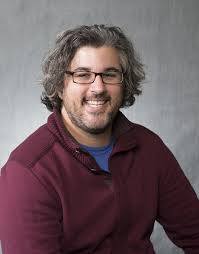Co-authored by Nicole Beddow, Curriculum Team Lead
After school, I shut my car door and take a long, deep breath. I pull the visor down and look at my eyes. They've lost my trademark sparkle and I feel sad -- because I am exhausted -- because I spent 50 percent of my energy today redirecting students and another 50 percent trying to inspire students and staff to want to be in school! Something isn't working. It wasn't until I began studying with Marc Brasof, that I realized, inspiring every child by being a loving and committed teacher, was just a fantasy. You see, Brasof passionately believes that change to our education system must come through distributive leadership.
Marc is a Professor of Education in Arcadia University's School of Education, where I attended, on the behalf of Schools for Sustainability, his discussion entitled, Student Voice in School Reform. Student voices are generally left out of school reform conversations, yet they make up approximately half of a school's population and are therefore, important stakeholders. The system of education today continually struggles to create and sustain change because it implements policy without the necessary information to inform change strategies.
In a Philadelphia high school, where Marc conducted his doctoral research, many students were out of their seats, wandering the hallways, and not eating the lunches that were provided for them during lunchtime. Disciplinary incidents increased as a result. In immediate reaction, more teachers were stationed around the building at lunch time, and students had to ask permission to go anywhere. The byproducts were as follows: teacher responsibilities increased, there was an unintended (but ever so common) decrease in teacher prep time, and decrease in student freedom. In short, the amount of energy spent to hold that existing policy in place was increased with a very slight decrease in the unwanted student behaviors.
Marc's studies found that traditional adult initial reactions are to increase demands on the existing policy. Often times, teachers and principals scramble to diagnose and solve problems quickly, and key topics such as socioeconomic status, school culture, and identity are left out of this discussion. Brasof discovered that teachers and principals often rely on Band-Aid solutions for deeper issues. For example, funding incentives have placed higher priority on factors like discipline reports and test results that create a shortsightedness, constricted view, and therefore a lack of creative problem solving.
When the students in Marc's school were later asked to help solve the lunchtime debacle they brought two different perspectives to the discussion: One, the lunches, and if you know anything about urban school lunches you will agree, were neither tasty nor nutritional. Two, the students had been saving their lunch money so that after school they could visit one of the many restaurants which had recently popped up in walking distance from the school. As a result, lunch time was seen more as a free period where students roamed the hallways or did other activities besides eat. Thus, the school experienced increased incidents of misbehavior during that time period. It wasn't that the students were bad, rather that a structural vacuum was created where students were left to their own devices: some using the time for their own intellectual and social development, others using the time for recreational activities.
Eventually, the school adopted a policy that allowed the students to legally and safely leave the building during lunch time. Almost overnight, discipline issues during lunch decreased, the school contributed to the economic growth of the surrounding community, and the students ate the food they prefered.
Two factors made the distribution of both authority and responsibility to youth and adults during change processes possible: Democracy and Youth Adult Partnerships. In a democratically minded system, students and staff operated under the assumption that all members of the school held part of the control. Students and staff engaged in democratic discussions and voted on policy reform together. Youth adult partnerships also help keep the conversations and feedback before policy goes into action genuine, or free from presumption and hypocrisy. In settings where adults and youth equally collaborate to solve problems, they are more likely to come up with authentic, creative, and sustainable changes. This is because adults are able to bring an understanding of the world's dominant social and cultural norms, while curious adolescents who are still learning our norms, will challenge many of the presumptions (and sometimes) hypocrisies that adults sustain.
Change will always exist, and it will come often. When we see disruptions to the school environment, let us ask, WHY it is occurring, and let us ask our students. Brasof says, "Let's not just get feedback on the policy we have already implemented because that's just a waste of time. Let's integrate students into the initial process of changing, developing, and ultimately sustaining change in school."
Curriculum Team Lead, Nicole Beddow, was born in rural Lancaster County but is a graduate of Temple University with a B.S. of Secondary Education and History. She is currently a third grade teacher at Mastery Charter School's Smedley Elementary Campus in Philadelphia. She has a strong background in Understanding By Design curriculum design and assessment and lived briefly in Bangkok, Thailand, where she fell in love with a culture of generosity and was able to eat organic meals at an affordable price. After traveling, attending and teaching in urban schools, she became interested in finding ways to bring the agricultural and sustainability practices to the city of Philadelphia to help fight poverty. She is also pursuing a yoga teaching certification and hopes to lead students to more reflective and mindful self discovery.

